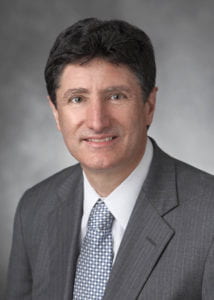![]()
Dear All,
You are cordially invited to attend the FRE Lecture Series on Thursday, November 7th in LC 400, Bern Dibner Library, 4th Floor (5 MetroTech Center), at 6:00PM.
Dr. Aparna Gupta will present a talk on the following topic:
Title:
Identifying the Risk Culture of Banks Using Machine Learning
Abstract:
We introduce text mining and unsupervised machine-learning algorithms to define the risk culture for U.S. bank holding companies and examine the relation between risk culture and performance. Applying principal component analysis on textually extracted features from 10-K filings identifies uncertainty, litigious and constraining sentiments among risk culture features to be significant in defining risk culture of banks. Cluster analysis of these features proposes three distinct risk culture clusters which we label as good, fair and poor. Consistent with regulatory expectations, sound risk culture in banks is characterized by high profitability ratios, bank stability, lower default risk and good governance.
Bio:
Aparna Gupta is an associate professor of quantitative finance and director of the Center for Financial Studies in the Lally School of Management at Rensselaer Polytechnic Institute. She has been the founding director of the MS program in Quantitative Finance and Risk Analytics at RPI, and holds a joint appointment in industrial and systems engineering in the School of Engineering at RPI. Dr. Gupta has been a visiting researcher at US SEC in Washington DC for two years. Her research interest is in financial decision support, risk management, and financial engineering. She applies mathematical modeling, machine learning and financial engineering techniques for risk management both in technology-enabled network services, such as, energy and renewable energy systems, communication systems, and technology-enabled service contracts, as well as risk management in the inter-connected financial institutions and financial markets. She has worked on several US National Science Foundation funded research projects in financial innovations for risk management. Dr. Gupta’s research has been published in top quantitative finance and operations research journals, and has been awarded various recognitions, including 2018 best paper award of the Financial Management Association and 2019 best paper award at the 17th FRAP Conference. She is the author of the book, Risk Management and Simulation. Dr. Gupta is a member of WFA, FMA, INFORMS, GARP and IAQF, and serves on the editorial board of several quantitative finance and analytics journals. She earned her doctorate from Stanford University and her B.Sc. and M.Sc. degrees in Mathematics from the Indian Institute of Technology, Kanpur.
We look forward to having you join us for the talk and refreshments. Please mark your calendars.




